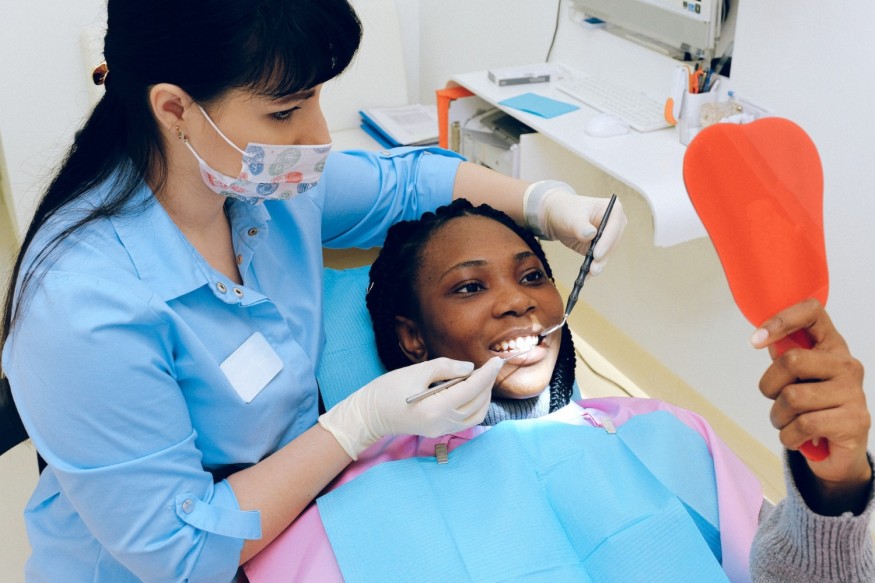
The 2030 Agenda for Sustainable Development is a plan created by the United Nations in 2015 with the goal of improving the lives of people everywhere while also protecting the planet.
These improvements are intended to have a significant impact in key areas. Dentists can help shift the globe toward a greener economy while also improving patients' dental health by implementing this approach. As a result, individuals will be better able to enjoy long, healthy lives.
Dentists and others in related fields understand the value of collaboration in creating a better environment for patients. We learned from Midtown dentist Dr. Belcastro that many dentists are aware of their duty to safeguard the oral health and safety of their patients while minimizing their impact on the environment.
Impact
Large-scale environmental damage may be caused by dental procedures. Every dental office in the United States alone generates a great deal of waste annually, including 4.8 million lead foils, 28 million liters of harmful x-ray liquid, 3.7 tons of toxic waste from mercury, 1.7 billion disposable bags, and 680 million disposable covers for dental tools, lights, and patient clothing. It's important to pay attention to this issue.
Wasteful practices at dental clinics, such as utilizing disposable covers, cleaning equipment, and hazardous disinfectants, as well as mercury in dental fillings, x-ray machines, and water waste from vacuum systems, are all related to keeping patients safe.
As well as helping the planet and their patients' health, dentists may save money by finding methods to reduce their impact on the environment. People in the health industry, especially dentists, need to take action and do their share to make the world a better place since the Earth is experiencing huge changes.
Dentists are vital to the maintenance of good dental and oral health. As a rule, patients stick with one dentist they feel comfortable with over the long term. Dentists strive to make their patients at ease and develop trusting relationships with them. This provides dentists with an excellent chance to have meaningful conversations with their patients about preventative health care and environmental sustainability.
There are financial and environmental costs associated with the current model of healthcare delivery, which are both problematic. Dentists, like medical professionals, have a responsibility to improve the environment and the health of their patients while adhering to the standards established by the General Dental Council (GDC). People are beginning to realize that global warming is a serious issue, but many are at a loss as to what to do about it.
Dentist offices that make an effort to be more eco-friendly often find that they may save money and get positive public perception by doing so. A practice's carbon footprint may be used as a proxy for its monetary cost to society and the environment. Carbon dioxide emissions from dentistry were 675 kilotonnes in 2014-2015; these emissions came mostly from transportation (64.5% of the total), energy production (15.3% of the total), and consumer spending (19%).
Ecological health, economic prosperity, and social well-being are the pillars of sustainable development. Globally, the lives of individuals are greatly improved when their dental health is cared for and when they have access to such treatment. As a bonus, it improves the quality of life for everyone involved by making communities more welcoming, productive, and healthier.
Many organizations will need to collaborate to make dentistry more eco-friendly. Everyone involved in the dental industry, from dentists to government officials to scientists to educators to manufacturers to repair technicians to garbage collectors all play a part. Local governments and non-profit organizations like the FDI and NDAs work together to advocate for and promote sustainable development initiatives.
Dentists are responsible for the teeth and general oral health of their patients, thus they must do their duties carefully and effectively. To ensure that future generations have access to sufficient natural resources, being environmentally conscious is an integral aspect of practicing excellent dentistry.
Goals of Environmental Sustainability
Taking care of one's teeth and oral health is an easy way to reduce one's impact on the environment. If you want to succeed, this is the way to do it.
Dentists should be role models for their staff by caring deeply about the health of their patients and the environment and showing them how to do the same.
The dental industry must reduce its energy, water, and paper consumption and its waste production and pollution levels.
Dentists should contact with regulatory agencies and national health regulations before selecting whether to utilize single-use, disposable, or reusable materials. It is essential that all of this be carried out with the utmost attention to patient well-being and safety.
The dental sector has the duty to guarantee that their products are safe for the environment for the duration of their use.
Manufacturers of dental products have a responsibility to reduce their environmental impact by using recyclable or biodegradable materials and developing new technologies to reduce waste.
Research exploring how dentistry may be made more eco-friendly and the effects it has on the natural world has to be supported by the government. The results of their actions would be clearer, and dentists could track and report them.
The dental industry must promote greener, more energy-efficient technologies.
National Dental Associations and other dental sector organizations should promote the most successful practices among dentists and work toward making them the norm rather than the exception.
Dentist groups and national dental associations should include sustainable development into their continuous educational initiatives.












